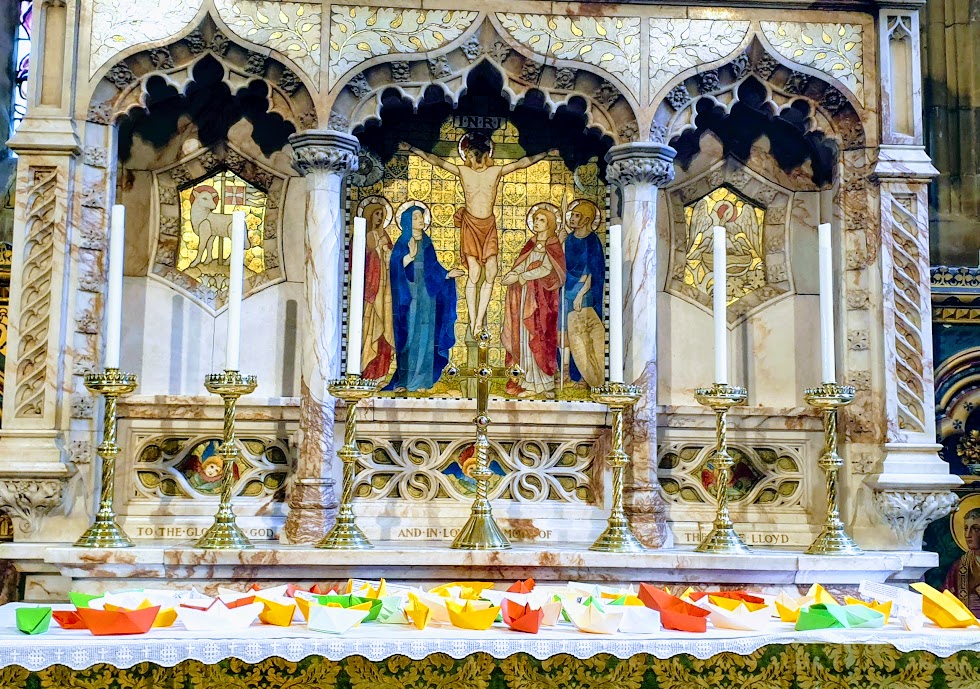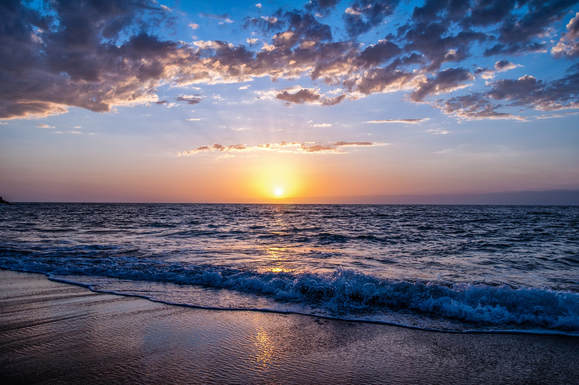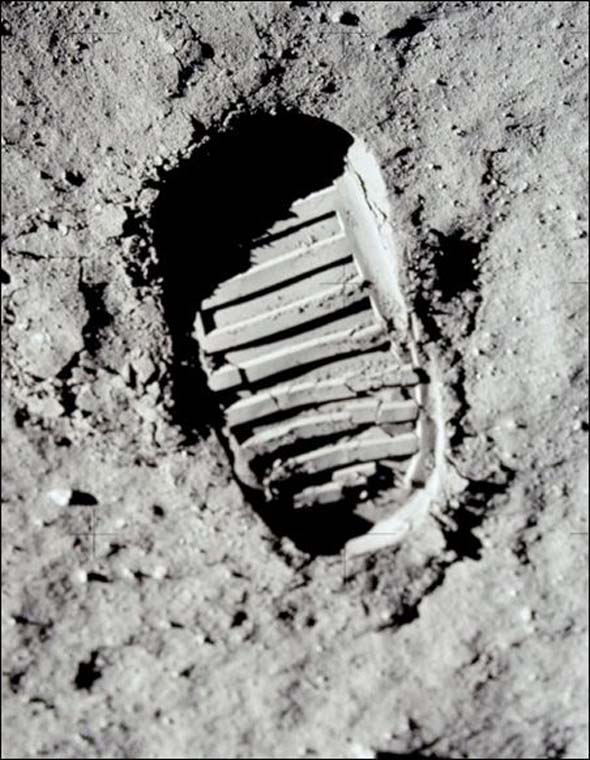The last two Sundays have explored the sea, and space, and our relationship to them; firstly on ‘Sea Sunday’ (14th July) and this Sunday (21st July) at our informal worship, with a discussion about the first moon landing 50 years ago.

Our Sea Sunday revisited some of the hymns that evoke a deep emotional response, such as Eternal Father, Strong to Save, reflecting both our awe and echoes of eternity in those depths. Our intercessions allowed us to express that yearning through the wordless praying of the Holy Spirit, as we helped one another construct origami boats and then silently allowed them to hold and carry our thoughts and intentions towards God. The prayer-boats were blessed and we placed them on the altar during the service.

Informal worship usually includes a short introduction to a topic by the Vicar, followed by around ten minutes of sharing and reflecting together on that theme. In line with the 50th anniversary of the moon landing, we looked at some photographic images and thought about Jesus’ presence in all created things, and in all places. ‘Cosmic Christ’ is way of exploring how Jesus is present whenever and wherever the material and divine co-exist, which the writer Fr Richard Rohr tells us, is “always and everywhere,” and is ultimately to do with “the unification of all things.”

One final prophetic note from our discussions was sounded towards the end, with the Vicar’s last slide and comment: that we as humans leave an indelible footprint on this planet, just as the first footprints on the moon will be there for a million years, with no wind to blow them away. The economic and environmental impact of our consumerism and neglect to conserve and share the earth’s resources is reaching a tipping point. The poor, the vulnerable, and the fragile ecosystems of this planet are the urgent responsibility of all who work for hope, peace and a better world.

And we, who through faith, live and move and have our being in the breath of God, are tasked with and equipped for the ministry of reconciliation, as our slide of Salvador Dali’s Christ of St John of the Cross seems to challenge us to apprehend and embody: a new consciousness, and a new perspective. A new creation – and a new hope.
“For in him all the fullness of God was pleased to dwell, and through him God was pleased to reconcile to himself all things, whether in earth or in heaven, by making peace through the blood of his cross.” Col 1: 19-20